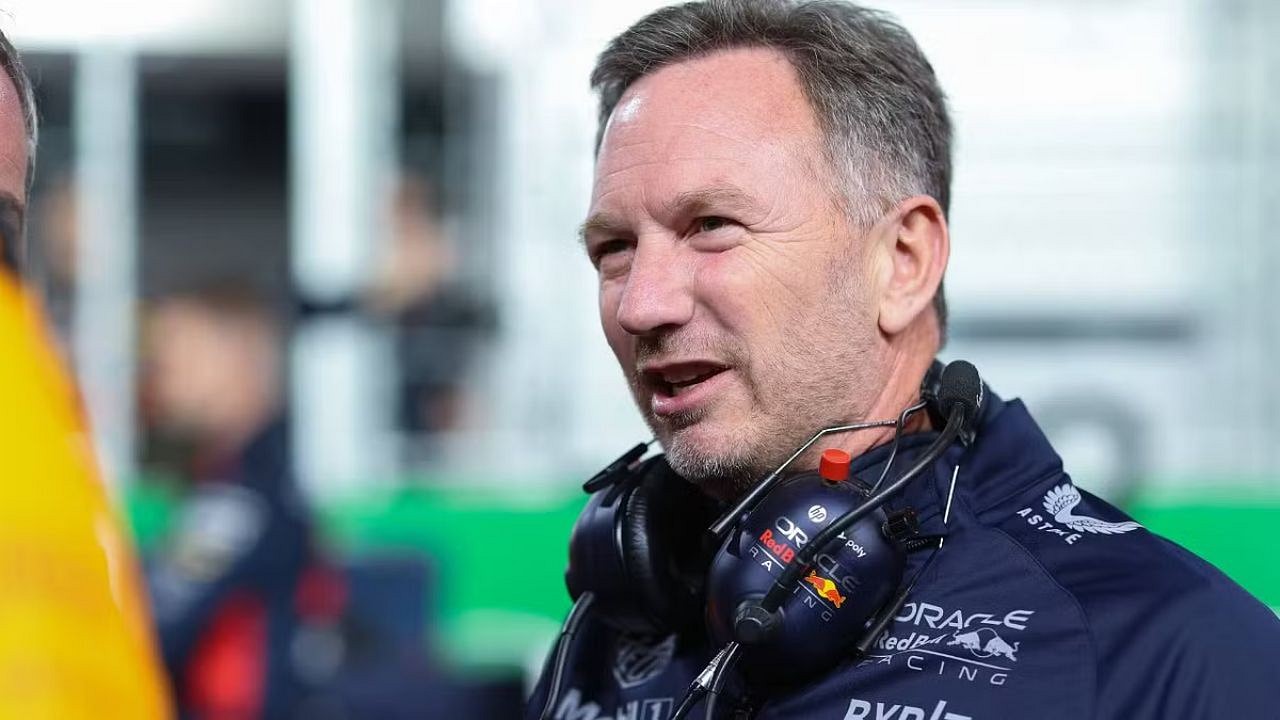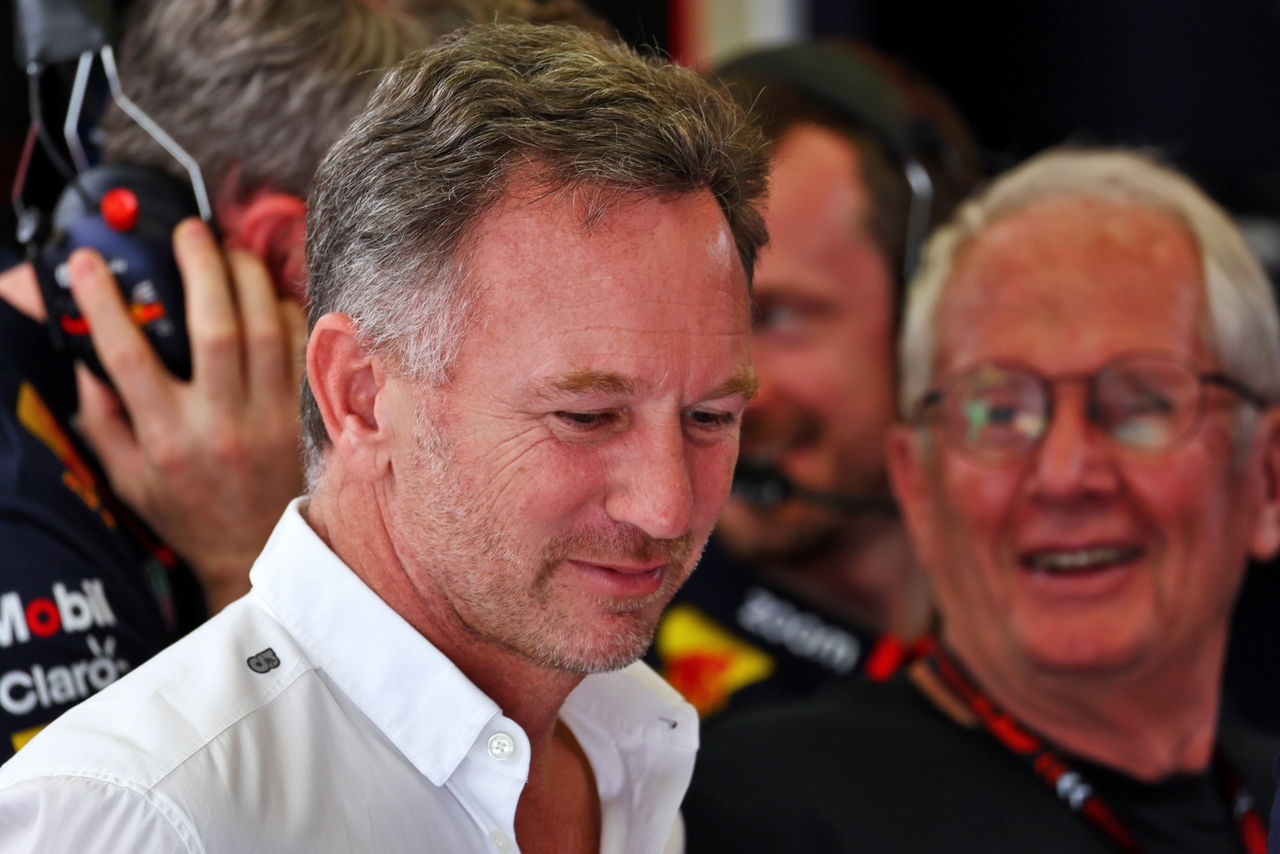Christian Horner’s Red Bull Exit and the Alpine Opportunity That Could Reshape Formula 1
Christian Horner’s long-running Red Bull nightmare has finally reached its ultimate conclusion. After nearly two decades of dominance and stability at the helm of Formula 1’s most successful modern outfit, Horner’s ties with the Red Bull organization have been severed completely. What happens next could fundamentally reshape the Formula 1 landscape for years to come.

The Final Cut: Horner’s Exit From Red Bull
For months, speculation swirled over Horner’s standing inside the Red Bull empire. Now, the paperwork confirms what insiders have long suggested: Horner is no longer part of the organization. New filings at Companies House this week showed that Horner has been officially terminated as a director across Red Bull Racing, Red Bull Technology, Red Bull Powertrains, and Red Bull Powertrains 2026.
This is not a temporary suspension. It’s a complete administrative coup de grâce—one that ends Horner’s 19-year tenure as the public and strategic face of Red Bull Racing.
The financial fallout is staggering. Horner was under contract until 2030 on a deal worth between £9–12 million per year. With a severance package likely exceeding £50 million, Horner departs not only as the fourth longest-serving team principal in F1 history but also one of its wealthiest exiles.
A Legacy Written in Championships
Horner’s record speaks for itself. Since arriving at Red Bull in 2005, he transformed a newly purchased midfield team into a global powerhouse. Under his leadership, Red Bull secured six Constructors’ Championships and eight Drivers’ Championships, the majority courtesy of Sebastian Vettel’s early dominance and Max Verstappen’s more recent reign.
Beyond the silverware, Horner built Red Bull into a factory-style operation despite relying on customer engines for most of its existence. His ultimate ambition, however, was always independence. In 2021, he launched Red Bull Powertrains with the goal of turning the team into a full works manufacturer. By 2026, Red Bull will debut its first in-house engine in partnership with Ford—a project Horner spearheaded but will now watch from the sidelines.
The timing of his exit is cruel. Red Bull’s “ultimate goal” has been realized, but without the man who drove the project.

The Turning Point: Mateschitz’s Death
The unraveling of Horner’s power can be traced to one pivotal event: the death of Red Bull founder Dietrich Mateschitz in October 2022.
Mateschitz wasn’t just Red Bull’s owner; he was Horner’s shield. For 17 years, the Austrian billionaire gave Horner free rein to run the racing team as he saw fit, free from corporate meddling or boardroom politics.
That changed immediately after Mateschitz’s passing. Control of Red Bull’s empire was split among three Austrian executives, including Oliver Mintzlaff, a former football executive with limited racing pedigree.
Mintzlaff and Horner’s relationship was fraught from the start. Years earlier, Mintzlaff had supported a Porsche buy-in that would have seen the carmaker take a 50% stake in Red Bull Racing—a deal Horner vehemently opposed and ultimately blocked by rallying the Thai majority owners. Mintzlaff never forgot the slight. Once he gained control after Mateschitz’s death, Horner’s autonomy was doomed.
What’s Next for Christian Horner?
With his ties to Red Bull fully severed, speculation has turned to Horner’s next move. Few believe he will simply disappear from the sport. His record, influence, and experience make him one of the most valuable free agents Formula 1 has ever seen.
For years, Ferrari was rumored to covet Horner. The possibility of him succeeding Frederic Vasseur at Maranello appeared plausible, particularly with Vasseur’s contract set to expire. But Ferrari’s recent decision to extend Vasseur’s tenure effectively closed that door.
That leaves Alpine—an option that may appear risky in the short term but carries extraordinary long-term potential.

Alpine: A Sleeping Giant
Alpine, the rebranded Renault team, has endured a turbulent modern history. The French manufacturer has wavered in its commitment to F1, struggling to match the might of Red Bull, Mercedes, and Ferrari.
A seismic shift is already underway. Beginning in 2026, Alpine will abandon its in-house Renault power unit and instead become a Mercedes customer team. It’s a remarkable admission of failure: Renault is effectively conceding that it cannot compete as a works outfit.
Into this vacuum steps Flavio Briatore, the controversial former Renault boss, recently reinstalled as Alpine’s “executive director.” His presence signals that Renault’s corporate leadership is looking for someone to handle the politics and business—but not necessarily the day-to-day running of the team. Briatore is a dealmaker, not a modern technical operator.
This creates a perfect opening for Horner.
Why Horner and Alpine Fit Together
Alpine’s ownership wants distance from daily operations. Horner is a proven operator who thrives when given autonomy. At Red Bull, he took a marketing project and turned it into the most dominant team of the modern era, all while running on customer engines. At Alpine, he would inherit a Mercedes power unit deal, a decent chassis base, and the freedom to implement his vision.
Crucially, Alpine could offer Horner something Red Bull never did: ownership.
Horner has long admired Toto Wolff’s part-ownership model at Mercedes, which grants not only influence but financial stake in the team’s future. According to Bernie Ecclestone, ownership is the one thing missing from Horner’s F1 journey. “Unless he gets somebody to put the money up to buy a team, I can’t see it happening,” Ecclestone remarked, hinting that a shareholding is Horner’s ticket back.
The £50 million payout from Red Bull isn’t enough to buy a controlling stake, but it could form the foundation of a deal. With Alpine’s valuation relatively modest compared to the “big three,” Horner could partner with Middle Eastern investors—many of whom see F1 as a booming asset class—to secure equity in the team.
In this scenario, Horner wouldn’t just be Alpine’s team principal. He’d be a co-owner with long-term skin in the game, finally achieving the status he craved but never attained at Red Bull.
The Wider Implications for Formula 1
If Horner were to join Alpine, the ripple effects across Formula 1 would be immense.
A New Power Balance: Alpine could transform from a perennial midfield struggler into a genuine challenger. With Mercedes power and Horner’s leadership, the team could close the gap to Red Bull, Ferrari, and McLaren.
Pressure on Red Bull: Losing the architect of its dominance at the precise moment it becomes a works manufacturer could destabilize Red Bull’s future. Horner knows the inner workings of the organization better than anyone.
Investor Attraction: Horner’s reputation and network could bring in serious financial backers, particularly from the Middle East and the U.S., boosting Alpine’s long-term growth.
A Personal Vindication: For Horner, leading Alpine to success would be more than professional achievement—it would be revenge against those who forced him out of Red Bull.
Conclusion: A Second Act in the Making
Christian Horner’s Red Bull story is over. The man who built the team into a juggernaut has been exiled from the empire he helped create. But in Formula 1, endings are rarely final.
Alpine offers Horner not just a seat back at the table, but the chance to build something new—and this time, with ownership and control. For Renault, it’s a way to stay in Formula 1 without micromanaging. For Horner, it’s the personal vindication and autonomy he lost with Mateschitz’s passing.
The business case is sound. The sporting case is compelling. The personal motivation is undeniable. If Horner makes the leap, Alpine may finally wake from its long slumber—and Formula 1’s competitive balance could be altered for the next decade.
One chapter of Horner’s story has closed. But the next could be even more explosive.
News
Die Welt hat sich weitergedreht: Marie Fredriksson rechnet leise ab – 5 Stars, die sie im Stich ließen.
Der Klang von Roxette war der Soundtrack einer ganzen Generation. Mit Hits wie „It Must Have Been Love“ und „The…
Conny Froboess: Die bittere Wahrheit hinter der Traumkarriere – Im Alter trägt sie eine unheilbare Wunde.
Der Name Conny Froboess ist in Deutschland untrennbar mit einem Gefühl von Leichtigkeit und sonnigen Kindertagen verbunden. Wenn ihr größter…
DER WACKELDACKEL DER REPUBLIK: WIE MERZ’ „HERBST DER REFORMEN“ IN EINER EISZEIT DER STARRE ENDETE UND UNSERE ZUKUNFT VERPFÄNDET WIRD
Einbruch in die politische Wirklichkeit: Die bittere Bilanz nach dem Versprechen des Aufbruchs Mit großen Versprechungen begann die Zeit, die…
Bommes’ Nerven liegen blank: Unerwarteter Eklat in der letzten Folge von „Gefragt – Gejagt“ schockt die Fans
Ein Augenblick, der das harmonische Ende einer Quiz-Saison sprengte. Ausgerechnet in der vorerst letzten Ausgabe der erfolgreichen ARD-Show „Gefragt –…
Herzschlag-Finale in der Scheune: Friedrich und Laura trotzen dem TV-Kitsch mit dem ehrlichsten Liebesbeweis der Staffel
Der leise Moment, der lauter spricht als jede große Inszenierung Es war der Moment, auf den Millionen von Zuschauern der…
Kai Pflaume bricht sein Schweigen: Das 30-Jahre-Geheimnis hinter Deutschlands Vorzeige-Ehe und warum seine Ilke sein wichtigstes Korrektiv ist
Die deutsche Fernsehlandschaft hat viele Gesichter, aber nur wenige sind so konstant, so sympathisch und so untrennbar mit dem Gefühl…
End of content
No more pages to load












